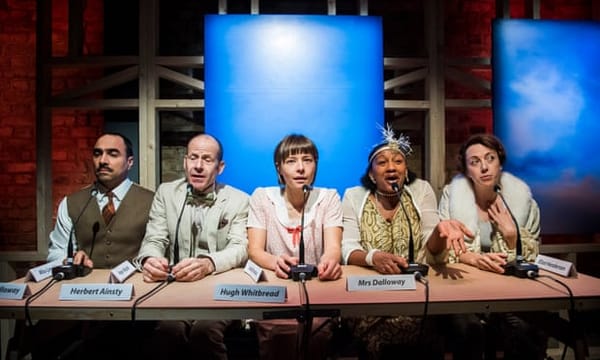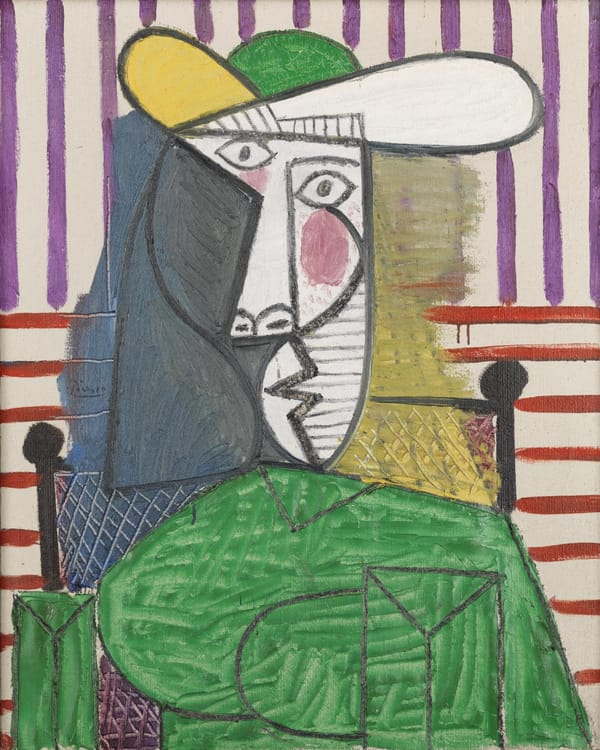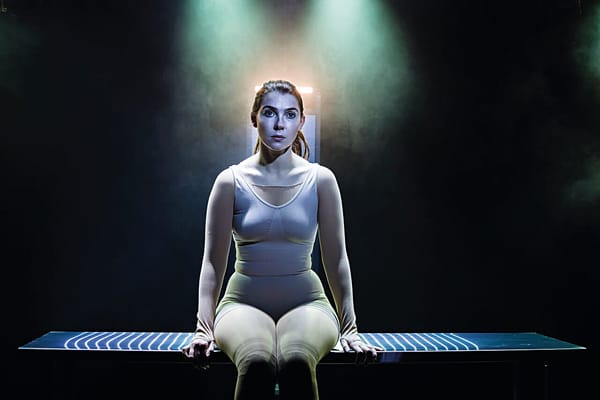The Funny, the Painful and Everything in Between
A Funny Thing Happened on the Way to the Gynaecologic Oncology Unit at Memorial Sloan-Kettering Cancer Center of New York City brings together two unlikely strangers in the morbid setting of their mothers’ cancer ward, only for them to connect in a way neither expects.

This is what my mother and I like to talk about,” says Karla defensively, as Don shouts at her from across the flimsy hospital curtains to shut up. “Yes, but this is a hospital!” Don retorts. Karla, an aspiring stand-up comedian, had been practicing permutations of lines like “I have been single for so long, I have started fantasising about my vibrator.” Not appropriate for a hospital room with two women suffering from cancer, Don thinks.
This initial dismissal of humour in the opening lines sets the scene for the subsequent exploration and observations of the role of humour in pain and suffering in Halley Feiffer’s new play. A Funny Thing... follows the relationship between a young stand-up comedian and a middle-aged man in the throes of divorce, brought together in the same hospital room where their mothers are being hospitalised for cancer. Immediately, the juxtaposition between Karla’s raunchy jokes and the air of death in the hospital setting becomes clear, and it is this relationship that the intermission-less, 80 minute play goes on to explore with wit and tenderness.
The antagonism between the two visitors is broken by Marcie, Karla’s mother, who croaks “She’s dead!” as the conversation between them turns to Karla’s sister. Karla bursts into uncontrollable laughter, while Don stands awkwardly, unsure of how to respond. The timing of her mother’s comment tickles Karla, despite the tragedy of the situation. Gallows humour is a way for Karla to deal with the pain, pain which bursts through the surface and reveals itself when, much later, she talks about her sister’s death with her mother.
Indeed, in the midst of Karla and Don’s outwardly witty conversations and flippant lines, we learn of the difficulties that each is in, and how complementary these problems are. Karla is poor and just starting out, but confident and self-assured in the direction she will go. Don made his fortune from a tech start-up that he has no personal interest in, suggested by his wife who is about to leave him. He first appears dressed “like a homeless man” despite his wealth, an outward manifestation of the mess his life is in, and talks with an air of resignation. As might be expected, Karla’s prickly nature hides a backstory – one that is revealed when Marcie awakes, and puts her down with every comment she makes.
As with any romantic comedy, two characters that are initially antagonistic must end up together. Karla reveals a moment of weakness being upset at how her mother treats her and her sister’s death, and Don’s tender response suddenly explodes into one of the most visual and ludicrous sex scenes I have seen on stage. While slightly unnecessary, it was certainly (perhaps awkwardly) funny, and took the connection between them to a graphic, symbolic level.
This connection that Don and Karla experience is a shared acknowledgement of each other’s suffering, that despite their very different life circumstances, they are brought together in shared grief for their mothers’ suffering. What the play does well is that it does not pretend that jokes and humour are so that one can “smile through the pain” – it is deeper than that. Rather, it is an observation that humour is the thread that allows for genuine human connection, that it is a medium for common understanding. In fact, sometimes it might be difficult to distinguish humour from pain. When Don’s mother Geena dies, he says tentatively to Marcie that he found his situation then “funny”. “It’s not funny,” Marcie replies. “What you feel is relief that your mother is dead, not that it is funny.”
Cariad Lloyd is brilliant as Karla, balancing the self-assurance of youth with her insecurity, while delivering her comedic lines well. Rob Crouch is a suitably scruffy Don, and carries the mid-life crisis aura well. Kristin Milward makes a brilliantly acerbic sick mum, and while Cara Chase, as Geena, gets only a few lines in the play, she does her part well. The intimate setting and importance of dialogue means that one’s experience could be very dependent on the cast, and I’m glad to say that this small cast has delivered excellently. The setting of the Finborough Theatre is perfect, a small, intimate space above a pleasant pub. One almost feels like the audience fits into the hospital room, and can partake in the interactions between strangers, just as how Don and Karla have.
This play is a comedy, but comments on very real issues of city life, from Don’s son’s drug problems to class differences between the two. Ultimately it celebrates human connection – the shared suffering, but also shared laughter. It is tender without being heavy, hilarious and witty without being slapstick, and definitely worth a watch.
-4 stars









